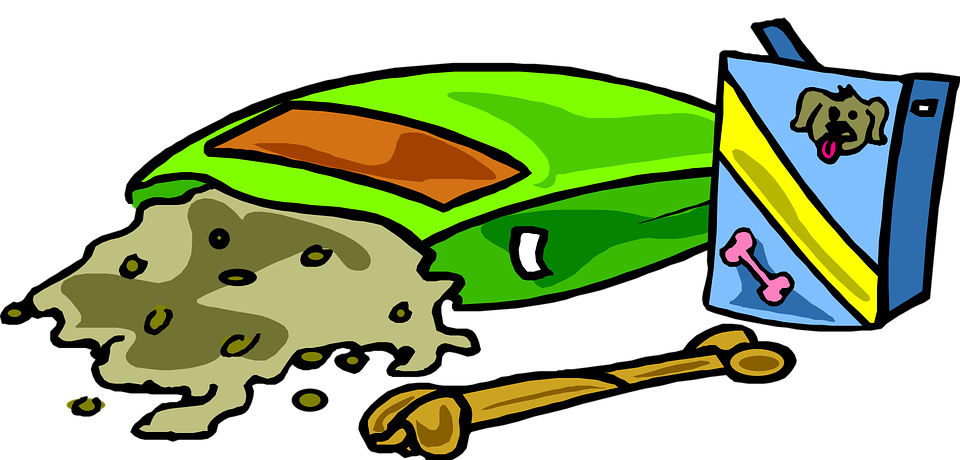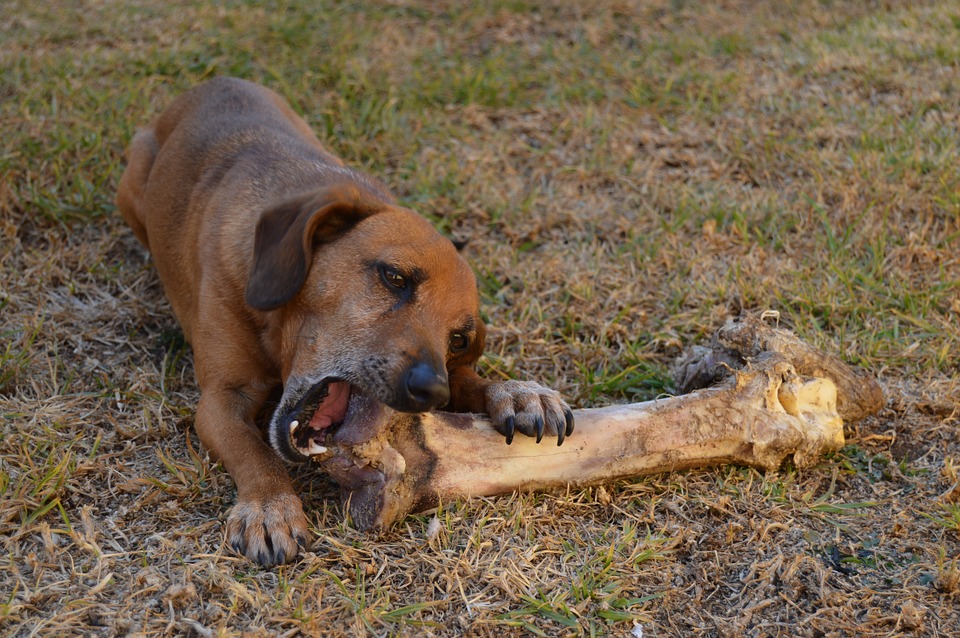Cinnamon, the fragrant spice derived from the bark of cinnamon trees, adds a warm, sweet flavour to numerous dishes. While it's a beloved ingredient in human cuisine, many pet owners wonder if it's safe for their furry companions. This article delves into the complex relationship between cinnamon and dogs, examining its potential risks, benefits, and safe usage practices.
Part 1: The Potential Risks of Cinnamon for Dogs

1.1 A Spice with a Double-Edged Sword
Cinnamon holds numerous health benefits for humans, boasting antioxidant and anti-inflammatory properties. However, its impact on dogs can be quite different. While small amounts may not pose serious harm, excessive consumption can trigger various adverse reactions, highlighting the importance of understanding these potential risks.
1.2 Digestive Distress: A Common Concern
- Gastrointestinal Upset: Cinnamon can irritate the delicate lining of a dog's digestive tract, potentially leading to uncomfortable symptoms like vomiting, diarrhoea, and abdominal discomfort. This effect is more pronounced with large quantities or concentrated forms like essential oils.
- Bloating and Gas: Cinnamon can cause gas and bloating in dogs, particularly if they are sensitive to spices. This can be uncomfortable for your furry friend and might lead to other digestive issues.
- Increased Risk for Sensitive Breeds: Certain dog breeds with pre-existing digestive sensitivities are more susceptible to experiencing digestive issues from cinnamon. These breeds may include small dogs, toy breeds, and breeds known for sensitive stomachs.
- Food Preparation Matters: The way cinnamon is prepared can also influence its impact on a dog's digestive system. Raw cinnamon, for instance, may be more likely to cause digestive upset compared to cooked cinnamon due to its stronger flavour and potential for irritation.
1.3 The Potential for Liver and Kidney Complications
- Liver Toxicity: In rare instances, cinnamon can cause liver damage in dogs, especially with prolonged exposure to large quantities or the use of cinnamon essential oils. This is a serious concern, requiring immediate veterinary attention.
- Kidney Issues: Cinnamon can potentially affect kidney function in dogs, especially those already suffering from kidney problems. It's crucial to consult your veterinarian if your dog has any pre-existing health conditions.
1.4 Allergic Reactions: A Rare but Serious Threat
- Skin Allergies: Some dogs may develop skin allergies to cinnamon, resulting in itching, redness, and inflammation. This can be triggered by direct contact with cinnamon or by consuming it.
- Respiratory Issues: In rare cases, cinnamon can cause respiratory problems in dogs, including coughing, wheezing, and difficulty breathing, particularly with the use of cinnamon essential oils.
- Identifying Allergic Reactions: Allergic reactions to cinnamon can manifest in various ways, including sneezing, watery eyes, and skin rashes. If you notice any of these symptoms after your dog has been exposed to cinnamon, consult your veterinarian immediately.
1.5 Other Potential Risks to Consider
- Low Blood Sugar: Cinnamon can lower blood sugar levels in dogs. While this might be beneficial for dogs with diabetes, it can be dangerous for healthy dogs. Monitoring blood sugar levels is crucial, especially for dogs with pre-existing conditions.
- Drug Interactions: Cinnamon can interact with certain medications, including blood thinners and diabetes medications. Consulting your veterinarian before giving your dog cinnamon is essential if they are on any medication.
- Potential for Overdose: Like any substance, cinnamon can be toxic if consumed in excessive quantities. The amount of cinnamon that constitutes an overdose varies depending on the dog's size, weight, and overall health.
Part 2: Is There Any Benefit to Cinnamon for Dogs?
![]()
2.1 Limited Scientific Research
While anecdotal evidence suggests cinnamon may offer certain benefits for dogs, scientific research on its effects on canine health is limited. This lack of robust scientific evidence makes it difficult to definitively claim any health benefits.
2.2 Potential Benefits: Antioxidant and Anti-Inflammatory Effects
- Antioxidant Support: Cinnamon contains antioxidants that can potentially help protect cells from damage caused by free radicals. These antioxidants may contribute to overall health and well-being.
- Anti-Inflammatory Effects: Cinnamon possesses anti-inflammatory properties that may help reduce inflammation in the body. This could be beneficial for dogs with inflammatory conditions.
- Blood Sugar Regulation: Cinnamon is known to help regulate blood sugar levels in humans. Limited studies in dogs suggest it may offer similar benefits, but further research is needed.
2.3 Cautionary Notes: Don't Overlook the Risks
- Lack of Scientific Consensus: Despite potential benefits, the scientific community lacks a consensus on the efficacy and safety of cinnamon for dogs. More research is needed to confirm its impact.
- No Substitute for Veterinary Care: Cinnamon should not be considered a substitute for proper veterinary care or medication. Consulting your veterinarian for any health concerns is essential.
Part 3: Cinnamon and Your Dog's Diet

3.1 Moderation: The Golden Rule
If you decide to give your dog a small amount of cinnamon, do so in moderation. A small pinch sprinkled on their food occasionally should be sufficient. Avoid exceeding this amount to minimize the risk of adverse reactions.
3.2 Avoid Concentrated Forms: Essential Oils and Sticks
- Cinnamon Essential Oils: Never give your dog cinnamon essential oils. These are highly concentrated and can be toxic, leading to serious health problems. Essential oils are intended for aromatherapy and should never be used on animals without proper veterinary guidance.
- Cinnamon Sticks: Avoid giving your dog whole cinnamon sticks. They can be a choking hazard and difficult to digest. Sticks also pose a risk of splintering, potentially causing internal injuries.
- Cinnamon Powder: Use cinnamon powder sparingly, as it can be easily overdone. Always consult your veterinarian before introducing any new foods or spices to your dog's diet.
3.3 Symptoms of Cinnamon Toxicity: Recognizing the Warning Signs
- Gastrointestinal Disturbances: Vomiting, diarrhoea, abdominal pain, and bloating are common signs of cinnamon toxicity. These symptoms usually manifest shortly after ingestion.
- Skin Reactions: Itching, redness, and inflammation on the skin can indicate a possible allergic reaction to cinnamon.
- Respiratory Problems: Coughing, wheezing, and difficulty breathing are serious signs that require immediate veterinary attention.
3.4 Seeking Veterinary Assistance: Act Fast
If you suspect your dog has consumed a significant amount of cinnamon or is exhibiting any symptoms of toxicity, contact your veterinarian immediately. Early intervention is crucial for a favourable outcome.
Part 4: Alternatives to Cinnamon for Dogs
4.1 Dog-Friendly Spices and Herbs: A Flavorful and Healthy Choice
- Turmeric: A potent anti-inflammatory with numerous health benefits for dogs, including joint support and digestive health.
- Ginger: Known for its digestive benefits, ginger can help soothe nausea and upset stomachs. It can also help reduce inflammation and boost the immune system.
- Parsley: Rich in vitamins and minerals, parsley can add flavour to your dog's food while providing a boost of antioxidants.
- Rosemary: Offers antioxidant properties and can help enhance cognitive function in dogs. It may also help improve memory and focus.
- Cilantro: Provides a refreshing flavour and is a good source of vitamins and minerals. It can also help with digestion and aid in removing toxins from the body.
4.2 Healthy Treats: A Delicious and Nutritious Alternative
- Pumpkin: A great source of fibre and can help regulate digestion. It can also be beneficial for dogs with digestive issues and urinary tract problems.
- Carrots: Packed with vitamins and minerals, carrots are a popular treat for dogs. They are low in calories and provide a good source of vitamin A.
- Apples: Provide fibre and antioxidants, but make sure to remove the core and seeds. Apple slices can be a refreshing and healthy treat for dogs.
- Bananas: A good source of potassium and can be enjoyed in moderation. They can provide a quick energy boost and support muscle function.
Part 5: FAQs
5.1 Can I give my dog cinnamon-flavoured treats?
It is not recommended to give your dog cinnamon-flavoured treats. The concentration of cinnamon in these treats can be too high for dogs, increasing the risk of digestive upset or toxicity. Opt for dog-friendly treats made with natural ingredients and without added spices.
5.2 Is cinnamon bark safe for dogs?
Cinnamon bark should be avoided for dogs. It can be a choking hazard and difficult to digest. If ingested, it can cause digestive upset and other complications.
5.3 What are the signs of cinnamon poisoning in dogs?
Signs of cinnamon poisoning in dogs include vomiting, diarrhoea, abdominal pain, lethargy, tremors, skin reactions, respiratory issues, and possibly liver or kidney dysfunction. If you notice any of these symptoms, seek immediate veterinary attention.
5.4 Can I use cinnamon in my dog's homemade food?
It is generally not recommended to use cinnamon in your dog's homemade food. The potential risks outweigh any potential benefits. Opt for other dog-friendly spices or herbs instead.
5.5 Is a little bit of cinnamon okay for my dog?
While a small amount of cinnamon might not cause serious harm, it's best to avoid it altogether. Cinnamon offers no significant benefits for dogs and can lead to health issues. Opt for dog-friendly alternatives instead.
5.6 What should I do if my dog ate cinnamon?
If your dog ate cinnamon, closely monitor them for any signs of digestive upset or other symptoms. If you notice any concerning symptoms, contact your veterinarian immediately.
5.7 What is the best way to keep cinnamon out of reach of my dog?
Store cinnamon and other spices in airtight containers and keep them out of reach of your dog. It's also important to be mindful of any spills or crumbs that may be on the floor. Clean up any spills immediately to prevent accidental ingestion by your furry friend.
Remember, when it comes to your dog's health, always err on the side of caution. If you have any concerns about your dog's diet or potential health risks associated with cinnamon or other spices, consult your veterinarian for personalized advice.
Everyone is watching
-

Can Dogs Eat Bananas? A Guide to Safe Treats
DOGS & PUPPIESThis comprehensive guide will delve into the world of canine nutrition, focusing on the popular question: can ...
-

Can Dogs Eat Oranges? (Is It Safe or Toxic?)
DOGS & PUPPIESThis article delves into the question of whether dogs can safely consume oranges. We'll explore the nutrition...
-

Can Dogs Eat Grapes? The Shocking Truth About This Fruit
DOGS & PUPPIESThis article delves into the controversial topic of grapes and dogs, exploring the potential dangers associate...
-

Why Do Dogs Eat Poop? Understanding Coprophagia in Dogs
DOGS & PUPPIESThis article delves into the perplexing phenomenon of coprophagia, the act of eating faeces, in dogs. We explo...
-

Can Dogs Eat Shrimp? A Guide to Safety and Risks
DOGS & PUPPIESThis comprehensive guide dives into the world of shrimp and dogs, exploring the potential benefits and risks a...
